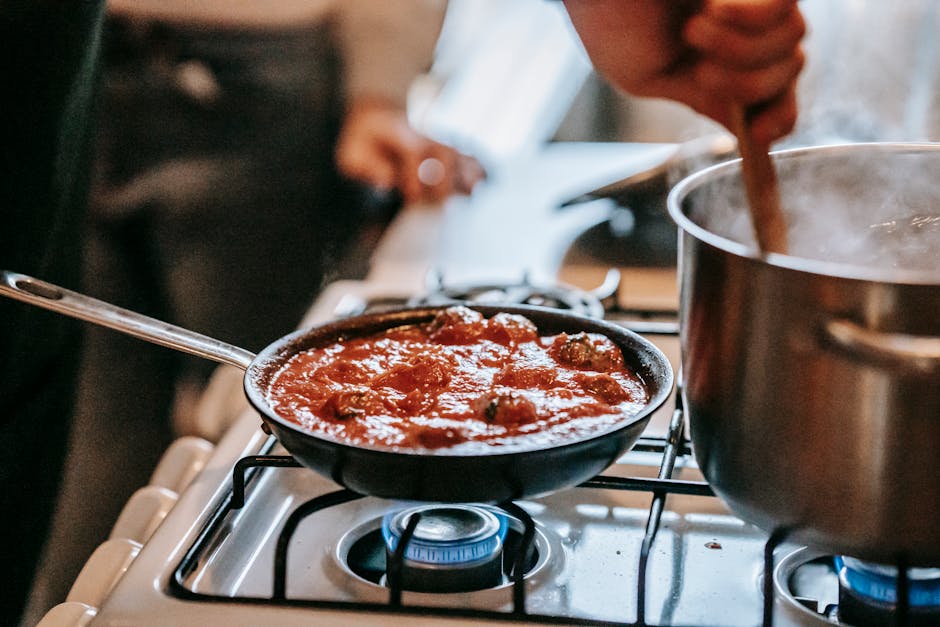Stove Tops Can Get Hot Enough to Melt Metal!

If you’ve ever accidentally left a metal object on your stove top, you know that it can get very hot. But did you know that it can get hot enough to melt metal?
In this blog post, we’ll discuss how hot a stove top has to be to melt metal, what type of metal can be melted by a stove top, and what happens when metal is melted on a stove top. We’ll also share some tips to prevent metal from melting on your stove top, and what to do if it does happen.
Stove Tops Can Get Hot Enough to Melt Metal!
How Hot Does a Stove Top Have to Be to Melt Metal?
A stove top can get hot enough to melt metal, but the temperature required depends on the type of metal. For example, aluminum has a melting point of 660 degrees Celsius, while iron has a melting point of 1538 degrees Celsius. So, if you’re trying to melt aluminum on a stove top, you won’t need as high of a temperature as you would for iron.
What Type of Metal Can Be Melted by a Stove Top?
Many types of metals can be melted by a stove top, including aluminum, iron, copper, and brass. However, some metals have higher melting points than others, so they may require a more powerful stove top or furnace.
What Happens When Metal Is Melted on a Stove Top?
When metal is melted on a stove top, it can cause serious damage to the appliance and create dangerous fumes. In some cases, the metal can even catch fire. Therefore, it’s important to be careful when using high temperatures to melt metal on a stove top.
Tips to Prevent Metal from Melting on Your Stove Top.
Use a Heat-Resistant Mat.
If you’re going to put anything metal on your stove top, be sure to use a heat-resistant mat. This will help protect your stove top from getting damaged and will also prevent any accidents if something does happen to get too hot.
Don’t Leave Metal Objects on the Stove Top for too Long.
It’s important to not leave any metal objects on the stove top for too long, even if you are using a heat-resistant mat. If the object is left on the heat for too long, it can still cause damage to the stove top or could even start a fire.
Use a Stove Top Cover.
Another good way to protect your stove top is to use a stove top cover when you’re not using it. This will help keep things clean and will also prevent any accidental melting of metal objects that may be left on the stove top.
What to Do If Metal Gets Melted on Your Stove Top.
Let It Cool Down.
If you have a metal object that has melted on your stove top, the first thing you should do is let it cool down. If the object is still hot, it could cause further damage to your stove top or injure you if you try to remove it. You should also turn off the burner that the object was on to prevent any more heat from being transferred to it.
Remove the Metal.
Once the object has cooled down, you can begin removing it from your stove top. If it is a small object, such as a spoon, you may be able to simply pick it up and set it aside. Larger objects may require a little more effort to remove. You can try using a putty knife or other blunt tool to loosen the edges of the metal and then gently pry it off of the stove top surface.
Clean the Stove Top.
After you have removed all of the metal from your stove top, you will need to clean it to remove any residue that may be left behind. You can start by wiping down the area with a damp cloth or paper towel. If there is stubborn residue that won’t come off with just water, you can try using a mild cleanser or rubbing alcohol. Be sure to rinse well and dry completely when you are finished cleaning so that no cleaner is left behind on your stove top.
Stove tops can get hot enough to melt metal, so it’s important to be careful when using them. Metal objects left on the stove top for too long can start to melt, and if this happens, it’s important to let the area cool down before trying to remove the object. Use a heat-resistant mat to protect your stove top from damage, and clean up any melted metal immediately to avoid further damage.

